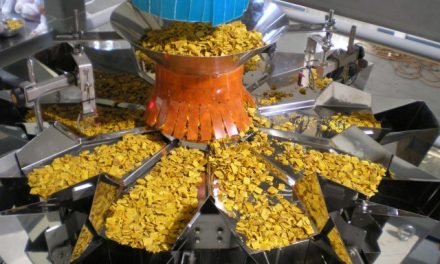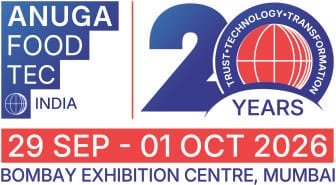The food industry in India, with a population of 1.3 billion people, is one of the largest in the world. Hence, it will be in demand always and recession-proof. It is a career that has gained both recognition and reputation in the past few years, leading to a number of job openings for the new aspirants writes Ajit Singh Bhatnagar.
Table of Contents
Food science & technology is the branch of applied sciences that combines the fundamentals of biochemistry, physical sciences and chemical engineering to study the physical, chemical and biological nature of food items. In simple words, food science (or food technology) deals with the manufacturing, processing, treatment, preservation, and distribution of food.
The ultimate objective of food science is to understand food processing principles and improve the food quality for the general public. Whatever food item (exceptionally packaged ones) you come across in the supermarket (or retail store) has had some contributions from a food scientist, food technologist or food engineer. Career in food science and technology require significant formal education. Food scientists and food technologists conduct tests and experiments to try to optimize food production. They typically hold at least a bachelor’s degree.
Food science & technology is the study of how to optimize agricultural output, while food technology is the implementation of those improvements. The majority of food scientists and technologists work in research capacities for labs, companies or universities, but a considerable number of positions are also available in manufacturing industries. Career in food science and technology allow researchers to make a tangible impact on the healthfulness of people’s diets around the world. Strong academic backgrounds in chemistry, biology, engineering, genetics and other relevant sciences can be parlayed into food science and technology positions in various settings. Food scientists and technologists are employed by the government and food-processing industries and universities, where they occupy research positions.
Who are Food Scientists
Food scientists research how to improve existing methods of food packaging and processing. This can include studying a food’s nutritional content and investigating alternative food sources and ways to purify foods containing additives. In addition, many focus on the manufacturing aspect of food and determine how best to process and store food products. All food scientists must be conscious of government regulations on food processing, but specific positions exist for those who want to make a career of food processing inspection.
Who are Food Technologists
Although the functions of food scientists and food technologists often overlap, the latter is more immediately concerned with product development. Those specializing in biotechnology have opportunities to work on the genetic engineering of plants and crops or explore how agricultural produce can be transformed into fuel sources (biofuels). In addition, nanotechnology is being used successfully to test the content of food, targeting the presence of harmful contaminants. As food scientists, food technologists must be capable of working independently and with a team. Workers often begin as part of a research group, with the possibility of promotions to managerial positions.
Growing Demand of Food Science & Technology Professionals
Relatively Food Science is still a very new discipline, and it is growing due to rapid urbanization and lifestyle changes worldwide. Being a branch of applied sciences, Food Science is very multi-disciplinary in nature, just like Biomedical Science, Pharmacy or Translational Science.
Food Science involves chemistry (organic, inorganic and physical), biochemistry, microbiology, nutrition, chemical and process engineering. The holy grail of food science lies in understanding the chemistry and biochemistry of food components like proteins, carbohydrate, fats, minerals, vitamins and water. So, the field needs highly qualified and trained Food Scientists. Moreover, apart from quality, safety and nutrition values also need to be kept in mind. Therefore, there is a growing market demand for more advancements and sophistication in food science and technology globally.
Educational Requirements
Undergraduates can expect to take an assortment of rigorous courses covering chemistry, biology, calculus, statistics, nutrition and health. Students are also frequently required to take classes on writing, and oral expression since food scientists often perform advisory functions for the government or food processing companies.
Food scientists and technologists seeking positions with private companies are considered qualified with a bachelor’s degree, but those who hope to work at universities will need a master’s or doctorate (Ph.D.). Food scientists and technologists don’t need a license to practice.
Ideally, you need to have Physics, Chemistry, and Biology (PCB) combination in your 10+2 and maybe mathematics. At the Bachelors level, ideal courses are 3-year or 4-year degree courses in Food Science, Food Technology, Food Science and Technology, or Food Science and Agriculture.
To have a career in R&D, QC and QA will require a higher degree (Masters or PhD). You can gain more advantage by pursuing a higher degree from abroad. If you are more inclined towards the sales and marketing (product/brand management) roles, an MBA will be beneficial.
If you want to pursue a career as a Nutritionist or Dietician, a formal degree after Bachelors is not always necessary. Instead, you can do a Certificate or PG Diploma course in Nutrition or Dietetics.
Why Pursue a Career in Food Science & Technology
The food industry is one of the largest in the world. This is because people will never stop eating (essential for survival). Hence, it will be in demand always and recession-proof.
One can choose any role within the food industry – behind the desk or in the lab. One can also select any function – R&D, Manufacturing, Quality Control, Sales & Marketing, Teaching and Consulting within the Government, Industry or Academia.
The growth of food industry in India is 10 to 15 per cent per annum. Although presently, more than 350 colleges are teaching food technology, Food Technologists’ requirement is still not fulfilled. Now, supply is less than demand. Food Technology is a vast subject. Famous avenues for employment in the food industry are:
- Biscuits & Bakery
- Cereals & pulses products
- Fish & meat products
- Poultry & egg products
- Fruit & vegetable products
- Alcoholic beverages
- Non-alcoholic beverages
- Pickles/papads
- Jams, jellies
- Sauces & ketchup
- Pasta & noodles
- Ready meals/instant mixes
- Spices & spice mixes
- Confectionary & chocolates
- Pickles/papads
- Dehydrated foods
- Irradiated foods
- Tea/coffee
- Fermented foods
- Oils & fats
- Dairy products
- Indian sweets & Namkeen
- In a SSE, a Food Technologist can become Technical Head.
In a MSE, a Food Technologist can become Divisional head i.e. Production Head, QA Head or R&D head. - -In a LSE, a Food Technologist can become Manager from Executive level of joining.
Degree courses in advanced food technology, legal aspects, management etc, will give opportunity to grow even up to CEO level.
Popular Sectors for Employment
- Food Manufacturing & Processing (Grains, fruits, vegetables, fish, meat etc.)
- FMCG
- Pharma-Biotech
- Agro-Biotech
- Dairy Firms
- Poultry Firms
- Bakeries & Confectionaries
- Breweries
- Retailers
- Healthcare
- Academia & Research Institutes
- Food Packaging
Popular Career Paths & Job Profile in Food Industry
- Research & Development (Food Scientist, Food Technologist, Food Chemist, Product Development Specialist)
- Quality Control & Assurance (Food Chemist, Food Inspector, Toxicologist)
- Food Processing (Food Processor, Process Development Specialist, Manufacturing Specialist, Food Production Manager)
- Sales, Marketing & Brand Management (various roles like other industries) • Others (Dietician, Nutritionist, Animal Nutritionist, Diet & Fitness Counselor)
Top Academic and Research Institutes to study Food Technology and food Science (In Alphabetical Order)
- TOP INSTITUTION IN INDIA
- Agricultural & Food Engineering Department, IIT Kharagpur
- Aligarh Muslim University, Department of Post Harvest Engineering and Technology
- Amrita University (Research Projects)
- Bhaba Atomic Research Centre
- CCS Haryana Agriculture University
- Central Food Technological Research Institute (CFTRI)
- Central Institute of Fisheries Education (CIFE)
- Central Institute of Post-Harvest Engineering & Technology (CIPHET)
- Central Marine Fisheries Research Institute (CMFRI)
- Centre for Food Science & Technology, Sambalpur University
- Defence Food Research Laboratory (DFRL)
- Department of Food Science and Nutrition, SNDT Women’s University
- Department of Food Science and Technology, Pondicherry University
- Department of Zoology, University of Delhi
- Dept. of Food Process Engineering, SRM University
- Dr S S Bhatnagar University Institute of Chemical Engineering & Technology, Chandigarh
- Faculty of Food Safety and Quality
- Food and Drug Toxicology Research Centre (FDTRC)
- GB Pant University of Agriculture and Technology
- IK Gujral Punjab Technical University
- Indian Institute of Science (IISc) Bangalore
- Indian Institute of Science Education and Research (IISER) Pune
- Indian Agricultural Research Institute (IARI)
- Indian Institute of Crop Processing Technology (IICPT)
- Indian Institute of Toxicology Research (IITR)
- Indian Institute of Vegetable Research (IIVR)
- Indian Veterinary Research Institute (IVRI)
- International Life Sciences Institute – India (ILSI)
- Department of Food Technology & Bio-Chemical Engineering, Jadavpur University
- Department of Food Technology, Jamia Hamdard
- Karpagam University
- Department of Food Technology, Jamia Hamdard
- Karpagam University
- National Agri-Food Biotechnology Institute (NABI)
- National Dairy Research Institute (NDRI)
- National Institute of Abiotic Stress Management (NIAM)
- National Institute of Food Technology Entrepreneurship and Management (NIFTEM)
- National Institute of High Security Animal Diseases (NIHSAD)
- National Institute of Nutrition (NIN)
- National Research Centre on Meat / Indian Council of Agricultural Research
- Punjab Agriculture University
- School of Health Sciences, University of Calicut
- School of Life Sciences, JNU
- TOP UNIVERSITIES ABROAD
- UNIVERSITIES IN USA
- Cornell University
- University of Illinois at Urbana Champaign
- Texas A&M University
- UC Davis
- University of Florida
- University of Missouri
- Michigan State University
- Iowa State University
- Purdue University
- University of Wisconsin-Madison
- Oklahoma State University
- University of Massachusetts Amherst
- Pennsylvania State University
- Ohio State University
- Clemson University
- University of Minnesota
- Southern Illinois University Carbondale
- Mississippi State University
- North Carolina State University
- Illinois Institute of Technology
- Colorado State University
- Virginia Tech
- California State University long Beach
- California State University Los Angeles
- University of Arkansas
- New York University
- Tufts University
- Drexel University
- University of Connecticut
- Kansas State University
- University of Idaho
- Oregon State University
- Washington State University
- Texas Tech University
- University of Delaware
- University of Georgia
- University of Tennessee
- Rutgers, State University of New Jersey
- Utah State University
- Brigham Young University
- Bowling Green State University
- Florida State University
- UNIVERSITIES IN UK
- Cardiff Metropolitan University
- Glasgow Caledonian University
- Heriot Watt University
- London Metropolitan University
- London South Bank University
- Sheffield Hallam University
- Teesside University
- University of Central Lancashire
- University of Chester
- University of Exeter
- University of Greenwich
- University of Leeds
- University of Nottingham
- University of Reading
- University of Surrey
- Universities in Other countries
- Aarhus University
- Auckland University of Technology
- Bern University of Applied Sciences
- Carleton University
- Curtin University
- Dalhousie University
- Denmark Technical University
- Dublin Institute of Technology
- ETH Zurich
- Ghent University
- KU Leuven
- Lund University
- Massey University
- McGill University
- National University of Singapore
- Norwegian University of Science and Technology
- RMIT University
- Saskatchewan University
- Swiss German University
- University College Cork
- University College Dublin
- University of Auckland
- University of British Columbia
- University of Copenhagen
- University of Gothenburg
- University of Guelph
- University of Manitoba
- University of Melbourne
- University of New South Wales
- University of Otago
- University of Queensland
- Victoria University
- Wageningen University
What is the Salary Structure in Food Industry in India
As a fresher, a Food Technologist can earn INR Rs 2 to 3 lakh per annum (average) in India.
Within five years, you can reach INR 500,000 – 640,000 per annum. With an experience of 10 years on your CV, you can expect an annual package of INR 900,000 – 1,180,000.
The salary structure for professionals within the Manufacturing function could be 20% (approximately) less than those in the R&D or QC/QA function. If you enjoy a lot of frequent travelling, then go for the roles of Food Inspector.
Academic roles will pay as per the University pay scales. Then there will be more extra incentives as well for Sales & Marketing professionals. For nutritionist and dieticians, the median annual wage is INR 210,000 for fresher; and Nutrition Managers can earn INR 750,000 per annum (average). As a nutritionist or diet counsellor, you can also do freelancing.
If you end up in the Sales & Marketing (including Brand Management) role, the salary levels will be 20 – 25% higher than the R&D and QC/QA professionals.
Scope of Food Industry in India
Food Processing Sector is the fifth-largest industry in terms of production, consumption, exports and potential growth. During the last five years ending 2019-20, Food Processing Industries (FPI) Sector has been growing at an average Annual Growth Rate of around 11.18 per cent. Food Processing Industry is one of the major employment intensive segments having a share of 12.38 per cent in the employment generated in all Registered Factory sector in 2017-18. The sector has witnessed FDI equity inflow of US$ 4.99 billion during the period April 2014 to September 2021.
Besides the investment factor, the opportunity factor is also there – as per the data from the Ministry of Food Processing Industries, 42% of the Indian Food Processing Industry is still unorganized (D&B) – so opportunities are also there for prospective entrepreneurs. Overall, signs are very promising for the future within the food industry.
If you found this article valuable, you may wish to receive our print version regularly. Subscribe now to receive the latest updates.
Author is a faculty member at Govt. Dr. W. W. Patankar Girls PG College, Durg, Chhattisgarh, India
Photo created by aleksandarlittlewolf – www.freepik.com

















